Filter by
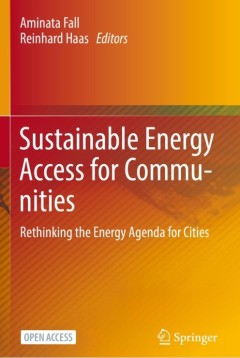
Sustainable energy access for communities : rethinking the energy agenda for …
This open access book examines the transition to sustainable energy systems in emerging cities. Experts from around the world present case studies from different countries and discuss efforts were needed for achieving the United Nations Sustainable Development Goals (SDGs). The authors look into the issue of environment vs. economics and discuss the question of whether the energy transition goa…
- Edition
- -
- ISBN/ISSN
- 9783030684105
- Collation
- xxiv, 170p. : ill.
- Series Title
- -
- Call Number
- 333.794 SUS s
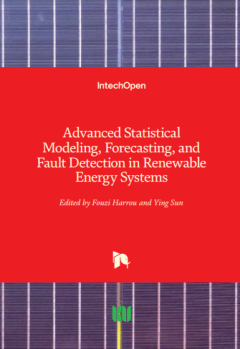
Advanced Statistical Modeling, Forecasting, and Fault Detection in Renewable …
Fault detection, control, and forecasting have a vital role in renewable energy systems (Photovoltaics (PV) and wind turbines (WTs)) to improve their productivity, ef?ciency, and safety, and to avoid expensive maintenance. For instance, the main crucial and challenging issue in solar and wind energy production is the volatility of intermittent power generation due mainly to weather conditions. …
- Edition
- -
- ISBN/ISSN
- 9781838805456
- Collation
- xiv, 197 p. : ill
- Series Title
- -
- Call Number
- 621.042011 ADV a
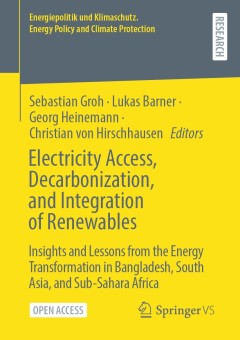
Electricity access, aecarbonization, and integration of renewables
- Edition
- -
- ISBN/ISSN
- 9783658382155
- Collation
- xii; 280 pg; ill.
- Series Title
- Energiepolitik und Klimaschutz. Energy Policy and Climate Protection
- Call Number
- 333.791 ELE e
- Edition
- -
- ISBN/ISSN
- 9783658382155
- Collation
- xii; 280 pg; ill.
- Series Title
- Energiepolitik und Klimaschutz. Energy Policy and Climate Protection
- Call Number
- 333.791 ELE e

Decentralised energy : a global game changer
As the contribution of renewable energy increases to meet climate change objectives, so does the extent to which electricity is generated by individuals and communities, moving a centralised system to a more decentralised one, with associated system management and integration challenges. However, new digital and storage technologies are enabling local system management, and reducing the need fo…
- Edition
- -
- ISBN/ISSN
- 9781911529699
- Collation
- xvii. ;ill. : 313 p.
- Series Title
- -
- Call Number
- 130. CHR d
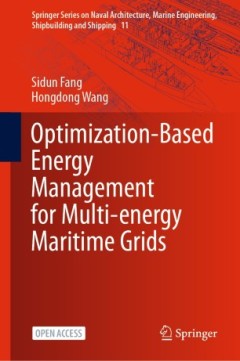
Optimization-based energy management for multi-energy maritime grids
This open access book discusses the energy management for the multi-energy maritime grid, which is the local energy network installed in harbors, ports, ships, ferries, or vessels. The grid consists of generation, storage, and critical loads. It operates either in grid-connected or in islanding modes, under the constraints of both power system and transportation system. With full electrificatio…
- Edition
- -
- ISBN/ISSN
- 9789813367340
- Collation
- xviii, 201p. : ill.
- Series Title
- -
- Call Number
- 621.312 FAN o
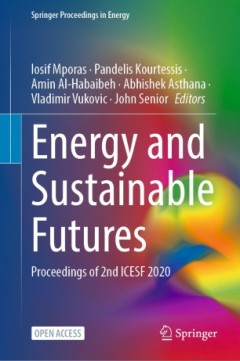
Energy and sustainable futures : proceedings of 2nd ICESF 2020
This open access book presents papers displayed in the 2nd International Conference on Energy and Sustainable Futures (ICESF 2020), co-organised by the University of Hertfordshire and the University Alliance DTA for Energy. The research included in this book covers a wide range of topics in the areas of energy and sustainability including: • ICT and control of energy; • conventional ene…
- Edition
- -
- ISBN/ISSN
- 9783030639167
- Collation
- xii, 282p. : ill.
- Series Title
- -
- Call Number
- 333.794 ENE e
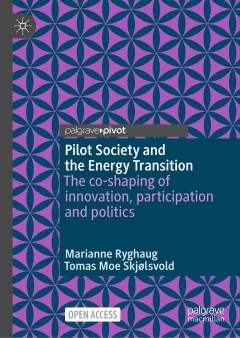
Pilot society and the energy transition : the co-shaping of innovation, parti…
This open access book examines the role of pilot and demonstration projects as crucial devices for conducting innovation in the context of the energy transition. Bridging literature from sustainability transitions and Science and Technology Studies (STS), it argues that such projects play a crucial role, not only in shaping future energy and mobility systems, but in transforming societies more …
- Edition
- -
- ISBN/ISSN
- 9783030611842
- Collation
- vii, 130p. : ill.
- Series Title
- -
- Call Number
- 354.3 RYG p

Handbook of ocean wave energy
This book offers a concise, practice-oriented reference-guide to the field of ocean wave energy. The ten chapters highlight the key rules of thumb, address all the main technical engineering aspects and describe in detail all the key aspects to be considered in the techno-economic assessment of wave energy converters. Written in an easy-to-understand style, the book answers questions relevant t…
- Edition
- -
- ISBN/ISSN
- 9783319398891
- Collation
- xxi, 287p. : ill.
- Series Title
- -
- Call Number
- 333.914 PEC h

Life cycle management
This book provides insight into the Life Cycle Management (LCM) concept and the progress in its implementation. LCM is a management concept applied in industrial and service sectors to improve products and services, while enhancing the overall sustainability performance of business and its value chains. In this regard, LCM is an opportunity to differentiate through sustainability performance on…
- Edition
- -
- ISBN/ISSN
- 9789401772211
- Collation
- xvii, 353p. : ill.
- Series Title
- -
- Call Number
- 658.5 GUI l
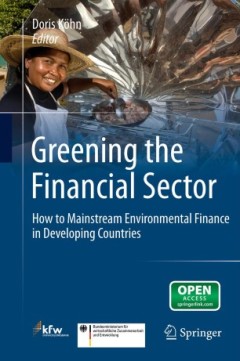
Greening the financial sector : how to mainstream environmental finance in de…
Given the manifold challenges of financial sectors in developing and transition countries, one might be tempted to believe that embarking on “green” finance is not a priority for financial systems development. However, there are a number of arguments against this view. Environmental finance, particularly energy efficiency and renewable energy (EERE) finance, can and should serve as an inter…
- Edition
- -
- ISBN/ISSN
- 9783642050879
- Collation
- xiv, 249p. : ill.
- Series Title
- -
- Call Number
- 332.1 GRE g
 Computer Science, Information & General Works
Computer Science, Information & General Works  Philosophy & Psychology
Philosophy & Psychology  Religion
Religion  Social Sciences
Social Sciences  Language
Language  Pure Science
Pure Science  Applied Sciences
Applied Sciences  Art & Recreation
Art & Recreation  Literature
Literature  History & Geography
History & Geography